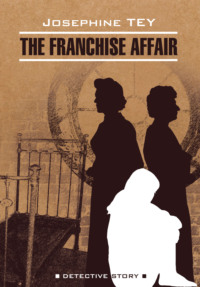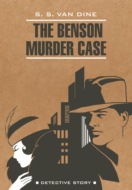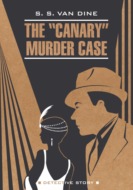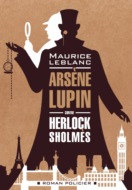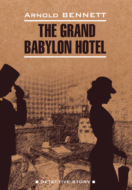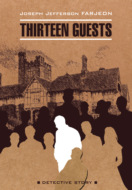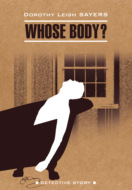Loe raamatut: «Загадочные события во Франчесе / The Franchise Affair»
© КАРО, 2020
Все права защищены
Chapter 1
It was four o’clock of a spring evening; and Robert Blair was thinking of going home.
The office would not shut until five, of course. But when you are the only Blair, of Blair, Hayward, and Bennet, you go home when you think you will. And when your business is mostly wills, conveyancing, and investments your services are in small demand in the late afternoon. And when you live in Milford, where the last post goes out at 3.45, the day loses whatever momentum it ever had long before four o’clock.
It was not even likely that his telephone would ring. His golfing cronies would by now be somewhere between the fourteenth and the sixteenth hole. No one would ask him to dinner, because in Milford invitations to dinner are still written by hand and sent through the post. And Aunt Lin would not ring up and ask him to call for the fish on his way home, because this was her bi-weekly afternoon at the cinema, and she would at the moment be only twenty minutes gone with feature, so to speak.
So he sat there, in the lazy atmosphere of a spring evening in a little market town, staring at the last patch of sunlight on his desk (the mahogany desk with the brass inlay that his grandfather had scandalised the family by bringing home from Paris) and thought about going home. In the patch of sunlight was his tea-tray; and it was typical of Blair, Hayward, and Bennet that tea was no affair of a japanned tin tray and a kitchen cup. At 3.50 exactly on every working day Miss Tuff bore into his office a lacquer tray covered with a fair white cloth and bearing a cup of tea in blue-patterned china, and, on a plate to match, two biscuits; petit-beurre Mondays, Wednesdays and Fridays, digestive Tuesdays, Thursdays and Saturdays.
Looking at it now, idly, he thought how much it represented the continuity of Blair, Hayward, and Bennet. The china he could remember as long as he could remember anything. The tray had been used when he was very small by the cook at home to take the bread in from the baker, and had been rescued by his young mother and brought to the office to bear the blue-patterned cups. The cloth had come years later with the advent of Miss Tuff. Miss Tuff was a war-time product; the first woman who had ever sat at a desk in a respectable solicitor’s in Milford. A whole revolution Miss Tuff was in her single gawky thin earnest person. But the firm had survived the revolution with hardly a jolt, and now, nearly a quarter of a century later, it was inconceivable that thin grey dignified Miss Tuff had ever been a sensation. Indeed her only disturbance of the immemorial routine was the introduction of the tray-cloth. In Miss Tuff’s home no meal was ever put straight on to a tray; if it comes to that, no cakes were ever put straight on to a plate; a tray-cloth or a doyley must intervene. So Miss Tuff had looked askance at the bare tray. She had, moreover, considered the lacquered pattern distracting, unappetising, and “queer.” So one day she had brought a cloth from home; decent, plain, and white, as befitted something that was to be eaten off. And Robert’s father, who had liked the lacquer tray, looked at the clean white cloth and was touched by young Miss Tuff’s identification of herself with the firm’s interests, and the cloth had stayed, and was now as much a part of the firm’s life as the deed-boxes, and the brass plate, and Mr. Heseltine’s annual cold.
It was when his eyes rested on the blue plate where the biscuits had been that Robert experienced that odd sensation in his chest again. The sensation had nothing to do with the two digestive biscuits; at least, not physically. It had to do with the inevitability of the biscuit routine; the placid certainty that it would be digestive on a Thursday and petit-beurre on a Monday. Until the last year or so, he had found no fault with certainty or placidity. He had never wanted any other life but this: this quiet friendly life in the place where he had grown up. He still did not want any other. But once or twice lately an odd, alien thought had crossed his mind; irrelevant and unbidden. As nearly as it could be put into words it was: “This is all you are ever going to have.” And with the thought would come that moment’s constriction in his chest. Almost a panic reaction; like the heart-squeezing that remembering a dentist appointment would cause in his ten-year-old breast.
This annoyed and puzzled Robert; who considered himself a happy and fortunate person, and adult at that. Why should this foreign thought thrust itself on him and cause that dismayed tightening under his ribs? What had his life lacked that a man might be supposed to miss?
A wife?
But he could have married if he had wanted to. At least he supposed he could; there were a great many unattached females in the district, and they showed no signs of disliking him.
A devoted mother?
But what greater devotion could a mother have given him than Aunt Lin provided; dear doting Aunt Lin.
Riches?
What had he ever wanted that he could not buy? And if that wasn’t riches he didn’t know what was.
An exciting life?
But he had never wanted excitement. No greater excitement, that is, than was provided by a day’s hunting or being all-square at the sixteenth.
Then what?
Why the “This is all you are ever going to have” thought?
Perhaps, he thought, sitting staring at the blue plate where the biscuits had been, it was just that Childhood’s attitude of something-wonderful-tomorrow persisted subconsciously in a man as long as it was capable of realisation, and it was only after forty, when it became unlikely of fulfilment, that it obtruded itself into conscious thought; a lost piece of childhood crying for attention.
Certainly he, Robert Blair, hoped very heartily that his life would go on being what it was until he died. He had known since his schooldays that he would go into the firm and one day succeed his father; and he had looked with good-natured pity on boys who had no niche in life ready-made for them; who had no Milford, full of friends and memories, waiting for them; no part in English continuity as was provided by Blair, Hayward, and Bennet.
There was no Hayward in the firm nowadays; there had not been one since 1843; but a young sprig of the Bennets was occupying the back room at this moment. Occupying was the operative word, since it was very unlikely that he was doing any work; his chief interest in life being to write poems of an originality so pristine that only Nevil himself could understand them. Robert deplored the poems but condoned the idleness, since he could not forget that when he had occupied that same room he had spent his time practising mashie shots into the leather arm-chair.
The sunlight slipped off the edge of the tray and Robert decided it was time to go. If he went now he could walk home down the High Street before the sunlight was off the east-side pavement; and walking down Milford High Street was still one of the things that gave him conscious pleasure. Not that Milford was a show-place. It could be duplicated a hundred times anywhere south of Trent. But in its unselfconscious fashion it typified the goodness of life in England for the last three hundred years. From the old dwelling-house flush with the pavement that housed Blair, Hayward, and Bennet and had been built in the last years of Charles the Second’s reign, the High Street flowed south in a gentle slope – Georgian brick, Elizabethan timber-and-plaster, Victorian stone, Regency stucco – to the Edwardian villas behind their elm trees at the other end. Here and there, among the rose and white and brown, appeared a front of black glass, brazening it out like an overdressed parvenu at a party; but the good manners of the other buildings discounted them. Even the multiple businesses had dealt leniently with Milford. True, the scarlet and gold of an American bazaar flaunted its bright promise down at the south end, and daily offended Miss Truelove who ran the Elizabethan relic opposite as a tea-shop with the aid of her sister’s baking and Ann Boleyn’s reputation. But the Westminster Bank, with a humility rare since the days of usury, had adapted the Weavers Hall to their needs without so much as a hint of marble; and Soles, the wholesale chemists, had taken the old Wisdom residence and kept its tall surprised-looking front intact.
It was a fine, gay, busy little street, punctuated with pollarded lime trees growing out of the pavement; and Robert Blair loved it.
He had gathered his feet under him preparatory to getting up, when his telephone rang. In other places in the world, one understands, telephones are made to ring in outer offices, where a minion answers the thing and asks your business and says that if you will be good enough to wait just a moment she will “put you thrrrough” and you are then connected with the person you want to speak to. But not in Milford. Nothing like that would be tolerated in Milford. In Milford if you call John Smith on the telephone you expect John Smith to answer in person. So when the telephone rang on that spring evening in Blair, Hayward, and Bennet’s it rang on Robert’s brass-and-mahogany desk.
Always, afterwards, Robert was to wonder what would have happened if that telephone call had been one minute later. In one minute, sixty worthless seconds, he would have taken his coat from the peg in the hall, popped his head into the opposite room to tell Mr. Heseltine that he was departing for the day stepped out into the pale sunlight and been away down the street. Mr. Heseltine would have answered his telephone when it rang and told the woman that he had gone. And she would have hung up and tried someone else. And all that followed would have had only academic interest for him.
But the telephone rang in time; and Robert put out his hand and picked up the receiver.
“Is that Mr. Blair?” a woman’s voice asked; a contralto voice that would normally be a confident one, he felt, but now sounded breathless or hurried. “Oh, I am so glad to have caught you. I was afraid you would have gone for the day. Mr. Blair, you don’t know me. My name is Sharpe, Marion Sharpe. I live with my mother at The Franchise. The house out on the Larborough road, you know.”
“Yes, I know it,” Blair said. He knew Marion Sharpe by sight, as he knew everyone in Milford and the district. A tall, lean, dark woman of forty or so; much given to bright silk kerchiefs which accentuated her gipsy swarthiness. She drove a battered old car, from which she shopped in the mornings while her white-haired old mother sat in the back, upright and delicate and incongruous and somehow silently protesting. In profile old Mrs. Sharpe looked like Whistler’s mother; when she turned full-face and you got the impact of her bright, pale, cold, seagull’s eye, she looked like a sibyl. An uncomfortable old person.
“You don’t know me,” the voice went on, “but I have seen you in Milford, and you look a kind person, and I need a lawyer. I mean, I need one now, this minute. The only lawyer we ever have business with is in London – a London firm, I mean – and they are not actually ours. We just inherited them with a legacy. But now I am in trouble and I need legal backing, and I remembered you and thought that you would—”
“If it is your car—” Robert began. “In trouble” in Milford meant one of two things; an affiliation order, or an offence against the traffic laws. Since the case involved Marion Sharpe, it would be the latter; but it made no difference because in neither case was Blair, Hayward, and Bennet likely to be interested. He would pass her on to Carley, the bright lad at the other end of the street, who revelled in court cases and was popularly credited with the capacity to bail the Devil out of hell. (“Bail him out!” someone said, one night at the Rose and Crown. “He’d do more than that. He’d get all our signatures to a guinea testimonial to the Old Sinner.”)
“If it is your car—”
“Car?” she said, vaguely; as if in her present world it was difficult to remember what a car was. “Oh, I see. No. Oh, no, it isn’t anything like that. It is something much more serious. It’s Scotland Yard.”
“Scotland Yard!”
To that douce country lawyer and gentleman, Robert Blair, Scotland Yard was as exotic as Xanadu, Hollywood, or parachuting. As a good citizen he was on comfortable terms with the local police, and there his connection with crime ended. The nearest he had ever come to Scotland Yard was to play golf with the local Inspector; a good chap who played a very steady game and occasionally, when it came to the nineteenth, expanded into mild indiscretions about his job.
“I haven’t murdered anyone, if that is what you are thinking,” the voice said hastily.
“The point is: are you supposed to have murdered anyone?” Whatever she was supposed to have done this was clearly a case for Carley. He must edge her off on to Carley.
“No; it isn’t murder at all. I’m supposed to have kidnapped someone. Or abducted them, or something. I can’t explain over the telephone. And anyhow I need someone now, at once, and—”
“But, you know, I don’t think it is me you need at all,” Robert said. “I know practically nothing about criminal law. My firm is not equipped to deal with a case of that sort. The man you need—”
“I don’t want a criminal lawyer. I want a friend. Someone who will stand by me and see that I am not put-upon. I mean, tell me what I need not answer if I don’t want to, and that sort of thing. You don’t need a training in crime for that, do you?”
“No, but you would be much better served by a firm who were used to police cases. A firm that—”
“What you are trying to tell me is that this is not ‘your cup of tea’; that’s it, isn’t it?”
“No, of course not,” Robert said hastily. “I quite honestly feel that you would be wiser—”
“You know what I feel like?” she broke in. “I feel like someone drowning in a river because she can’t drag herself up the bank, and instead of giving me a hand you point out that the other bank is much better to crawl out on.”
There was a moment’s silence.
“But on the contrary,” Robert said, “I can provide you with an expert puller-out-of-rivers; a great improvement on my amateur self, I assure you. Benjamin Carley knows more about defending accused persons than anyone between here and—”
“What! That awful little man with the striped suits!” Her deep voice ran up and cracked, and there was another momentary silence. “I am sorry,” she said presently in her normal voice. “That was silly. But you see, when I rang you up just now it wasn’t because I thought you would be clever about things” (“Wasn’t it, indeed,” thought Robert) “but because I was in trouble and wanted the advice of someone of my own sort. And you looked my sort. Mr. Blair, do please come. I need you now. There are people from Scotland Yard here in the house. And if you feel that it isn’t something you want to be mixed up in you could always pass it on to someone else afterwards; couldn’t you? But there may be nothing after all to be mixed up in. If you would just come out here and ‘watch my interests’ or whatever you call it, for an hour, it may all pass over. I’m sure there is a mistake somewhere. Couldn’t you please do that for me?”
On the whole Robert Blair thought that he could. He was too good-natured to refuse any reasonable appeal – and she had given him a loophole if things grew difficult. And he did not, after all, now he came to think of it, want to throw her to Ben Carley. In spite of her bêtise about striped suits he saw her point of view. If you had done something you wanted to get away with, Carley was no doubt God’s gift to you; but if you were bewildered and in trouble and innocent, perhaps Carley’s brash personality was not likely to be a very present help.
All the same, he wished as he laid down the receiver that the front he presented to the world was a more forbidding one – Calvin or Caliban, he did not care, so long as strange females were discouraged from flinging themselves on his protection when they were in trouble.
What possible kind of trouble could “kidnapping” be, he wondered as he walked round to the garage in Sin Lane for his car? Was there such an offence in English law? And whom could she possibly be interested in kidnapping? A child? Some child with “expectations”? In spite of the large house out on the Larborough road they gave the impression of having very little money. Or some child that they considered “ill-used” by its natural guardians? That was possible. The old woman had a fanatic’s face, if ever he saw one; and Marion Sharpe herself looked as if the stake would be her natural prop if stakes were not out of fashion. Yes, it was probably some ill-judged piece of philanthropy. Detention “with intent to deprive parent, guardian, etc., of its possession.” He wished he remembered more of his Harris and Wilshere. He could not remember off-hand whether that was a felony, with penal servitude in the offing, or a mere misdemeanour. “Abduction and Detention” had not sullied the Blair, Hayward, and Bennet files since December 1798, when the squire of Lessows, much flown with seasonable claret, had taken the young Miss Gretton across his saddle-bow from a ball at the Gretton home and ridden away with her through the floods; and there was no doubt at all, of course, as to the squire’s motive on that occasion.
Ah, well; they would no doubt be open to reason now that they had been startled by the irruption of Scotland Yard into their plans. He was a little startled by Scotland Yard himself. Was the child so important that it was a matter for Headquarters?
Round in Sin Lane he ran into the usual war but extricated himself. (Etymologists, in case you are interested, say that the “Sin” is merely a corruption of “sand,” but the inhabitants of Milford of course know better; before those council houses were built on the low meadows behind the town the lane led direct to the lovers’ walk in High Wood.) Across the narrow lane, face to face in perpetual enmity, stood the local livery stable and the town’s newest garage. The garage frightened the horses (so said the livery stable), and the livery stable blocked up the lane continually with delivery loads of straw and fodder and what not (so the garage said). Moreover the garage was run by Bill Brough, ex-R.E.M.E., and Stanley Peters, ex-Royal Corps of Signals; and old Matt Ellis, ex-King’s Dragoon Guards, looked on them as representatives of a generation which had destroyed the cavalry and an offence to civilisation.
In winter, when he hunted, Robert heard the cavalry side of the story; for the rest of the year he listened to the Royal Corps of Signals while his car was being wiped, oiled, filled, or fetched. Today the Signals wanted to know the difference between libel and slander, and what exactly constituted defamation of character. Was it defamation of character to say that a man was “a tinkerer with tin cans who wouldn’t know a nut from an acorn”?
“Don’t know, Stan. Have to think over it,” Robert said hastily, pressing the starter. He waited while three tired hacks brought back two fat children and a groom from their afternoon ride (“See what I mean?” said Stanley in the background) and then swung the car into the High Street.
Down at the south end of the High Street the shops faded gradually into dwelling houses with doorsteps on the pavement, then to houses set back a pace and with porticos to their doors, and then to villas with trees in their gardens, and then, quite suddenly, to fields and open country.
It was farming country; a land of endless hedged fields and few houses. A rich country, but lonely; one could travel mile after mile without meeting another human being. Quiet and confident and unchanged since the Wars of the Roses, hedged field succeeded hedged field, and skyline faded into skyline, without any break in the pattern. Only the telegraph posts betrayed the century.
Away beyond the horizon was Larborough. Larborough was bicycles, small arms, tin-tacks, Cowan’s Cranberry Sauce, and a million human souls living cheek by jowl in dirty red brick; and periodically it broke bounds in an atavistic longing for grass and earth. But there was nothing in the Milford country to attract a race who demanded with their grass and earth both views and tea-houses; when Larborough went on holiday it went as one man west to the hills and the sea, and the great stretch of country north and east of it stayed lonely and quiet and unlittered as it had been in the days of the Sun in Splendour. It was “dull”; and by that damnation was saved.
Two miles out on the Larborough road stood the house known as The Franchise; set down by the roadside with the inconsequence of a telephone kiosk. In the last days of the Regency someone had bought the field known as The Franchise, built in the middle of it a flat white house, and then surrounded the whole with a high solid wall of brick with a large double gate, of wall height, in the middle of the road frontage. It had no relation with anything in the countryside. No farm buildings in the background; no side-gates, even, into the surrounding fields. Stables were built in accordance with the period at the back of the house, but they were inside the wall. The place was as irrelevant, as isolated, as a child’s toy dropped by the wayside. It had been occupied as long as Robert could remember by an old man; presumably the same old man, but since The Franchise people had always shopped at Ham Green, the village on the Larborough side of them, they had never been seen in Milford. And then Marion Sharpe and her mother had begun to be part of the morning shopping scene in Milford, and it was understood that they had inherited The Franchise when the old man died.
How long had they been there, Robert wondered. Three years? Four years?
That they had not entered Milford socially was nothing to reckon by. Old Mrs. Warren, who had bought the first of the elm-shaded villas at the end of the High Street a small matter of twenty-five years ago in the hope that midland air would be better for her rheumatism than the sea, was still referred to as “that lady from Weymouth.” (It was Swanage, incidentally.)
The Sharpes, moreover, might not have sought social contacts. They had an odd air of being self-sufficient. He had seen the daughter once or twice on the golf-course, playing (presumably as a guest) with Dr. Borthwick. She drove a long ball like a man, and used her thin brown wrists like a professional. And that was all Robert knew about her.
As he brought the car to a stop in front of the tall iron gates, he found that two other cars were already there. It needed only one glance at the nearer – so inconspicuous, so well-groomed, so discreet – to identify it. In what other country in this world, he wondered as he got out of his own car, does the police force take pains to be well-mannered and quiet?
His eye lighted on the further car and he saw that it was Hallam’s; the local Inspector who played such a steady game on golf-course.
There were three people in the police car: the driver, and, in the back, a middle-aged woman and what seemed to be either a child or a young girl. The driver regarded him with that mild, absent-minded, all-observing police eye, and then withdrew his gaze, but the faces in the back he could not see.
The tall iron gates were shut – Robert could not remember ever seeing them open – and Robert pushed open one heavy half with frank curiosity. The iron lace of the original gates had been lined, in some Victorian desire for privacy, by flat sheets of cast iron; and the wall was too high for anything inside to be visible; so that, except for a distant view of its roof and chimneys, he had never seen The Franchise.
His first feeling was disappointment. It was not the fallen-on-evil-times look of the house – although that was evident; it was the sheer ugliness of it. Either it had been built too late to share in the grace of a graceful period, or the builder had lacked an architect’s eye. He had used the idiom of the time, but it had apparently not been native to him. Everything was just a little wrong: the windows the wrong size by half a foot, wrongly placed by not much more; the doorway the wrong width, and the flight of steps the wrong height. The total result was that instead of the bland contentment of its period the house had a hard stare. An antagonistic, questioning stare. As he walked across the courtyard to the unwelcoming door Robert knew what it reminded him of: a dog that has been suddenly wakened from sleep by the advent of a stranger, propped on his forelegs, uncertain for a moment whether to attack or merely bark. It had the same what-are-you-doing-here? expression.
Before he could ring the bell the door was opened; not by a maid but by Marion Sharpe.
“I saw you coming,” she said, putting out her hand. “I didn’t want you to ring because my mother lies down in the afternoons, and I am hoping that we can get this business over before she wakes up. Then she need never know anything about it. I am more grateful than I can say to you for coming.”
Robert murmured something, and noticed that her eyes, which he had expected to be a bright gipsy brown, were actually a grey hazel. She drew him into the hall, and he noticed as he put his hat down on a chest that the rug on the floor was threadbare.
“The Law is in here,” she said, pushing open a door and ushering him into a drawing-room. Robert would have liked to talk to her alone for a moment, to orientate himself; but it was too late now to suggest that. This was evidently the way she wanted it.
Sitting on the edge of a bead-work chair was Hallam, looking sheepish. And by the window, entirely at his ease in a very nice piece of Hepplewhite, was Scotland Yard in the person of a youngish spare man in a well-tailored suit.
As they got up, Hallam and Robert nodded to each other.
“You know Inspector Hallam, then?” Marion Sharpe said. “And this is Detective-Inspector Grant, from Headquarters.”
Robert noticed the “Headquarters,” and wondered. Had she already at some time had dealings with the police, or was it that she just didn’t like the slightly sensational sound of “the Yard”?
Grant shook hands, and said:
“I’m glad you’ve come, Mr. Blair. Not only for Miss Sharpe’s sake but for my own.”
“Yours?”
“I couldn’t very well proceed until Miss Sharpe had some kind of support; friendly support if not legal, but if legal so much the better.”
“I see. And what are you charging her with?”
“We are not charging her with anything—” Grant began, but Marion interrupted him.
“I am supposed to have kidnapped and beaten up someone.”
“Beaten up?” Robert said, staggered.
“Yes,” she said, with a kind of relish in enormity. “Beaten her black and blue.”
“Her?”
“A girl. She is outside the gate in a car now.”
“I think we had better begin at the beginning,” Robert said, clutching after the normal.
“Perhaps I had better do the explaining,” Grant said, mildly.
“Yes,” said Miss Sharpe, “do. After all it is your story.”
Robert wondered if Grant were aware of the mockery. He wondered a little, too, at the coolness that could afford mockery with Scotland Yard sitting in one of her best chairs. She had not sounded cool over the telephone; she had sounded driven, half-desperate. Perhaps it was the presence of an ally that had heartened her; or perhaps she had just got her second wind.
“Just before Easter,” Grant began, in succinct police-fashion, “a girl called Elisabeth Kane, who lived with her guardians near Aylesbury, went to spend a short holiday with a married aunt in Mainshill, the suburb of Larborough. She went by coach, because the London-Larborough coaches pass through Aylesbury, and also pass through Mainshill before reaching Larborough; so that she could get off the coach in Mainshill and be within a three-minute walk of her aunt’s house, instead of having to go into Larborough and come all the way out again as she would have to if she travelled by train. At the end of a week her guardians – a Mr. and Mrs. Wynn – had a postcard from her saying that she was enjoying herself very much and was staying on. They took this to mean staying on for the duration of her school holiday, which would mean another three weeks. When she didn’t turn up on the day before she was supposed to go back to school, they took it for granted that she was merely playing truant and wrote to her aunt to send her back. The aunt, instead of going to the nearest call-box or telegraph office, broke it to the Wynns in a letter, that her niece had left on her way back to Aylesbury a fortnight previously. The exchange of letters had taken the best part of another week, so that by the time the guardians went to the police about it the girl had been missing for four weeks. The police took all the usual measures but before they could really get going the girl turned up. She walked into her home near Aylesbury late one night wearing only a dress and shoes, and in a state of complete exhaustion.”
“How old is the girl?” Robert asked.
“Fifteen. Nearly sixteen.” He waited a moment to see if Robert had further questions, and then went on. (As one counsel to another, thought Robert appreciatively; a manner to match the car that stood so unobtrusively at the gate.) “She said she had been ‘kidnapped’ in a car, but that was all the information anyone got from her for two days. She lapsed into a semi-conscious condition. When she recovered, about forty-eight hours later, they began to get her story from her.”
“They?”
“The Wynns. The police wanted it, of course, but she grew hysterical at any mention of police, so they had to acquire it second-hand. She said that while she was waiting for her return coach at the cross-roads in Mainshill, a car pulled up at the kerb with two women in it. The younger woman, who was driving, asked her if she was waiting for a bus and if they could give her a lift.”
